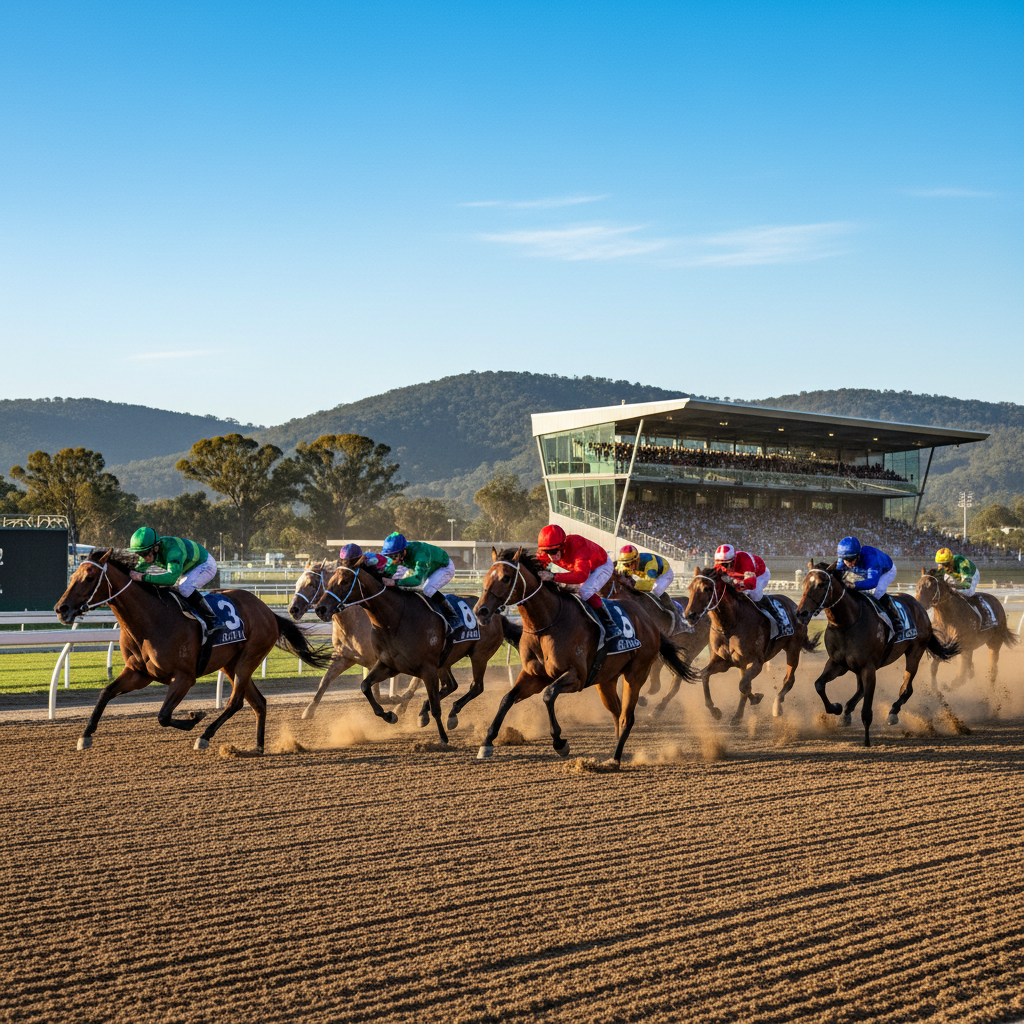Ever wondered how much you could make from owning a racehorse in Australia? Spoiler! it’s probably not enough to retire on a yacht by the Sydney Harbour! But don’t let that stop you from getting excited about what sort of rewards you can get from owning a race horse. Owning a thoroughbred, whether in its entirety or through a syndication, is both thrilling and financially rewarding, but there’s a lot more to it than just the prize money.When you think about the thrill of watching your horse cross the finish line first, it’s easy to imagine cash flying your way. In reality, though, the horse racing prize money split is more than just you winning everything, you have to share it with your team. Let’s break it down for you, so you can understand what to expect when owning a racehorse.
How is Horse Racing Prize Money Split in Australia?
The magic formula for prize money is generally quite simple. Typically, the breakdown looks like this:
- 80% to the owner
- 10% to the trainer
- 5% to the jockey
Yes, we know it doesn’t add up to 100%. The last 5%? Well, that’s often used to cover things like horse welfare fees. After all, they were the ones that had to run! If you’re hoping for some hidden stash of extra cash, I hate to break it to you—but it’s probably not coming your way. This prize distribution isn’t set in stone and can vary depending on the race and location, but it’s a solid rule of thumb. (Source: Horse Racing Sense) Feeling like 80% doesn’t sound too bad? Well, let’s dig a little deeper into what that really means.
What Does an Owner Really Make?
Now, before you start looking at putting down some deposits down in some Sydney penthouses (to be fair, don’t think any winning will be enough for that), remember that 80% of the purse doesn’t always mean 80% of a huge jackpot. Most races in Australia offer prize money that ranges from a few thousand dollars to millions for the big events like the Melbourne Cup or The Everest. But the costs add up quickly too—feeding, training, veterinary care… it’s not exactly a cheap hobby. (Source: TwinSpires)
For a typical race, where the total purse might be around $100,000, the owner’s share would be $80,000. Sounds great, right? But after paying the trainer, the jockey, the vet, and probably even your horse’s therapist (hey, racing is stressful!), what you’re left with can feel more like loose change than a small fortune.
Typical Owner Costs
- Training fees: A good trainer doesn’t come cheap, and in Australia, these fees can range from $80 to $160 per day, depending on the trainer’s reputation.
- Vet bills: Horses don’t come with a warranty, and unexpected vet bills are common. Surgery, colic treatments, and other issues can rack up fast. (Source: Horse Racing Sense)
- Transport: Whether you’re shipping your horse across state lines or just to the local track, transport fees are another constant expense.
So, while that 80% might seem huge, you’re actually sharing the winnings with your horse’s entire entourage. At least you get the glory, right?
Is Syndication a Good Option?
If owning 100% of a racehorse sounds a bit overwhelming—both in cost and responsibility—then syndication might be your best bet. Syndication allows you to own a percentage of a horse rather than the whole thing, which means splitting the costs (and the winnings!) with other shareholders. This is a popular option in Australia because it makes ownership more accessible. At Blueblood Thoroughbreds, you can explore various syndication options that suit your budget and racing dreams.
In syndication, the prize money split still follows the same general rule—80% goes to the owners. But instead of one owner taking home the full amount, it’s divided up among the shareholders based on their percentage of ownership. The beauty of syndication is that you still get all the excitement of racehorse ownership without needing to pay for everything upfront.
Syndication costs include all of the above for one monthly fee, which makes it easy to plan and another reason why syndication is becoming more popular!
Interested in seeing which syndications are available? Check out our current offerings and find a share that suits you!
More Than Just Prize Money
- Stud fees: If your horse has a successful racing career, there’s potential to make money after retirement through breeding. Stud fees can range from a few thousand dollars to millions for champion horses.
- Sale of racehorses: Many owners sell their horses when they show potential, and some can make substantial profits this way.
- Bonuses and incentives: In addition to prize money, certain races in Australia offer incentives or bonuses to horses bred or trained in specific regions. (Source: Horse Racing Sense)
While prize money is a big draw, these additional avenues offer even more financial opportunities for owners. With some luck and the right horse, you could make a significant return on your investment.
Is It All Worth It?
Let’s be honest—owning a racehorse in Australia isn’t always about the money. It’s about the excitement, the thrill of the race, and the pride of seeing your horse compete. Sure, the potential winnings are great, but for most owners, it’s the experience that counts.
But if you play your cards right, there’s no reason you can’t make a decent return on your investment. With prize money increasing in races across the country and the popularity of syndication rising, horse ownership has never been more accessible. Plus, when you partner with a trusted syndication service like Blueblood Thoroughbreds, you can rest easy knowing you’re in good hands.
Ready to get started? Contact us today to learn more about the exciting world of racehorse ownership!

